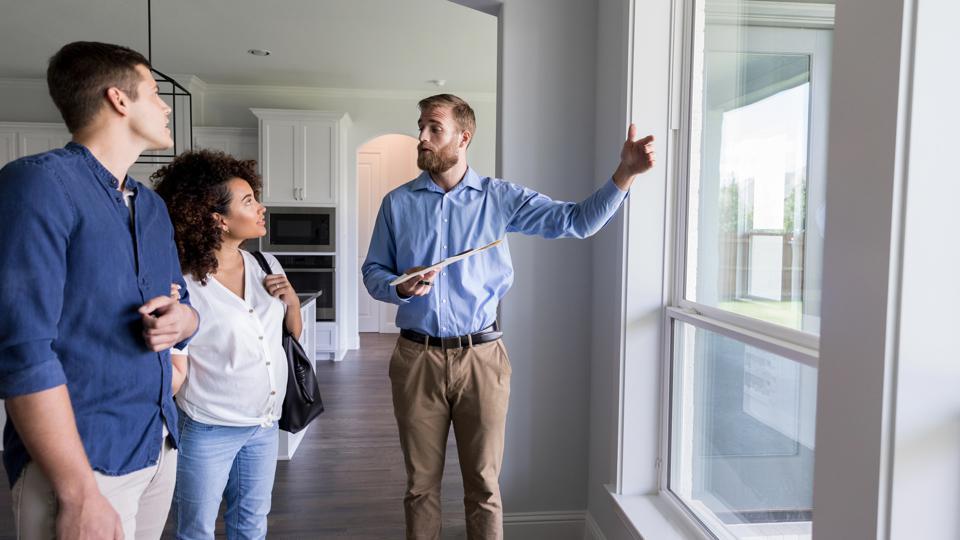
The most important question you should ask yourself when considering Florida's real estate licensing is "What education do I need?" This article will outline the requirements for pre-licensing education, how long it takes, and how to make the most of that education. We'll also talk about which courses are most important and what you should expect in return.
Pre-licensing education
You must complete pre-licensing training before you can begin practicing real estate in Florida. Before you can apply to get a license, you must have completed at least 63 hours in pre-licensing training. The courses should cover the law, principles, real estate practice, and mathematics. Some courses can cost between $100 and $500. You must score 70% to be eligible for Florida license. Attorneys do not need to take any pre-licensing courses because they are allowed to sit for the sales associate exam without a pre-license.

Pre-licensing education for real property in Florida can be obtained online or in person through a number of companies. Some of these courses include self-paced courses with practice exams. Some offer practice exams and textbooks as study aids. No matter what your choice is, it's important to meet the state's pre-licensing requirements. There are many online programs that offer pre-licensing education and are free.
Cost of pre-licensing training
Costs for pre-licensing real estate education vary by state. They can be anywhere from $100 up to $1,000. There are many factors that can explain this. The most common reason is the time and effort required to create real estate courses. Companies who create these courses must pay their staff to ensure that the content is up to date and in compliance with all state laws. Although some brokerages and title companies offer free continuing education courses, these are generally not free because they're longer and more comprehensive than other courses.
It doesn't matter which state you reside in, pre-licensing education in Florida to get a real estate license is worthwhile. The Florida real-estate exam has 100 multiple-choice question and a passing score 75%. There are 45 questions that focus on real estate principles and law, and 10 questions that assess your mathematical abilities. If you study properly, you can expect to pass with a score of 75% or higher.
Pre-licensing education takes time
An individual must have a Florida realty license and be over 18 years. They must also complete at least 90 hours of pre-licensing education and a six-hour course in contract writing. They must also demonstrate good moral character. A person who has been convicted for a felony will not be eligible to receive a license as a real estate agent. It is necessary to have fingerprint clearance. After that, they will need to be approved online by their Broker and complete their continuing education requirements.

All applicants must be at minimum 18 years of age with a US social security number. In addition to this, applicants must have a high school diploma. While real estate education isn't required to become a licensed broker in Florida, having the right foundation can make it easier to learn the ropes. Florida recognizes licenses from a few states, including Nebraska, Arkansas, Georgia, Illinois, and Arkansas. Applicants are eligible to get a license in Florida if they have a real estate license from any of these states. Candidates from Arkansas and Connecticut, Georgia, Illinois, or Connecticut will also need to pass the state exam.
FAQ
Should I use an mortgage broker?
A mortgage broker is a good choice if you're looking for a low rate. Brokers work with multiple lenders and negotiate deals on your behalf. Brokers may receive commissions from lenders. You should check out all the fees associated with a particular broker before signing up.
Should I buy or rent a condo in the city?
Renting may be a better option if you only plan to stay in your condo a few months. Renting saves you money on maintenance fees and other monthly costs. A condo purchase gives you full ownership of the unit. The space can be used as you wish.
What should I do before I purchase a house in my area?
It depends on how much time you intend to stay there. Save now if the goal is to stay for at most five years. You don't have too much to worry about if you plan on moving in the next two years.
How do I know if my house is worth selling?
Your home may not be priced correctly if your asking price is too low. If you have an asking price well below market value, then there may not be enough interest in your home. For more information on current market conditions, download our Home Value Report.
Statistics
- It's possible to get approved for an FHA loan with a credit score as low as 580 and a down payment of 3.5% or a credit score as low as 500 and a 10% down payment.5 Specialty mortgage loans are loans that don't fit into the conventional or FHA loan categories. (investopedia.com)
- This means that all of your housing-related expenses each month do not exceed 43% of your monthly income. (fortunebuilders.com)
- Based on your credit scores and other financial details, your lender offers you a 3.5% interest rate on loan. (investopedia.com)
- The FHA sets its desirable debt-to-income ratio at 43%. (fortunebuilders.com)
- Over the past year, mortgage rates have hovered between 3.9 and 4.5 percent—a less significant increase. (fortunebuilders.com)
External Links
How To
How to Locate Houses for Rent
Moving to a new area is not easy. But finding the right house can take some time. When choosing a house, there are many factors that will influence your decision making process. These factors include price, location, size, number, amenities, and so forth.
You can get the best deal by looking early for properties. For recommendations, you can also ask family members, landlords and real estate agents as well as property managers. This way, you'll have plenty of options to choose from.